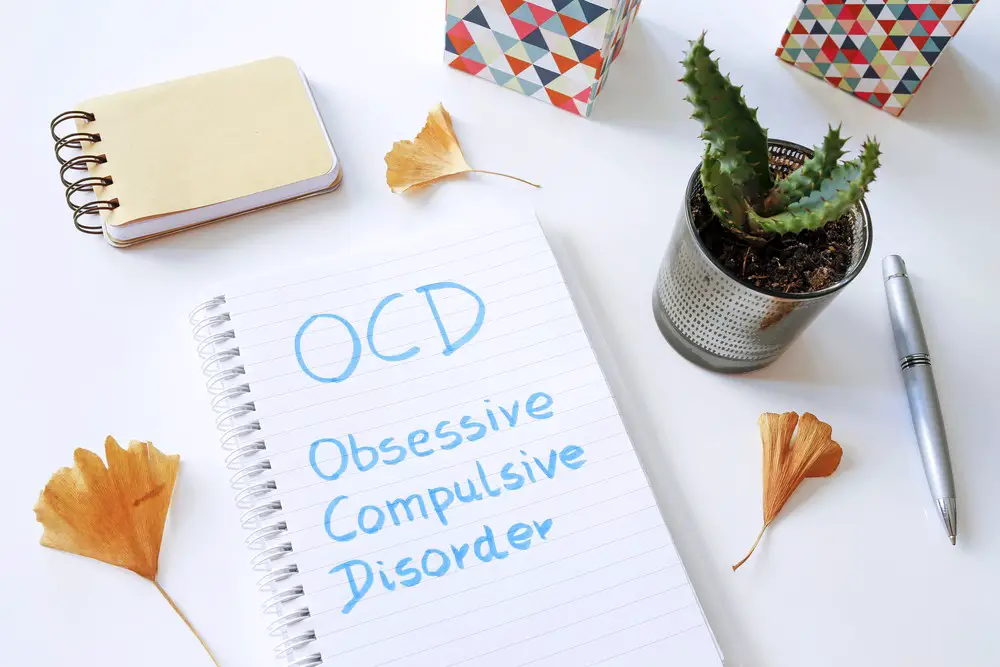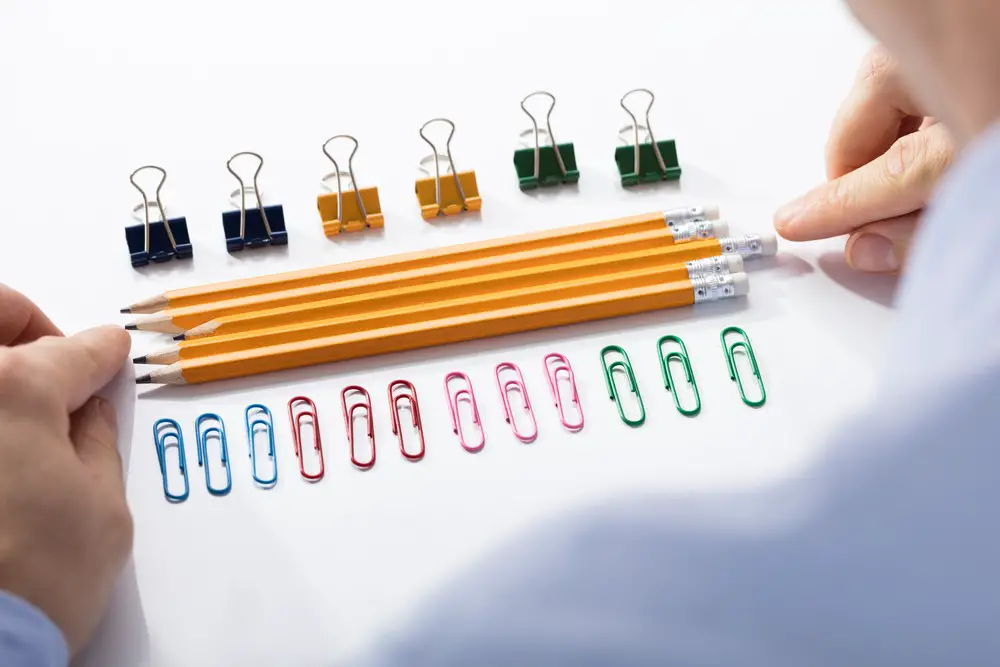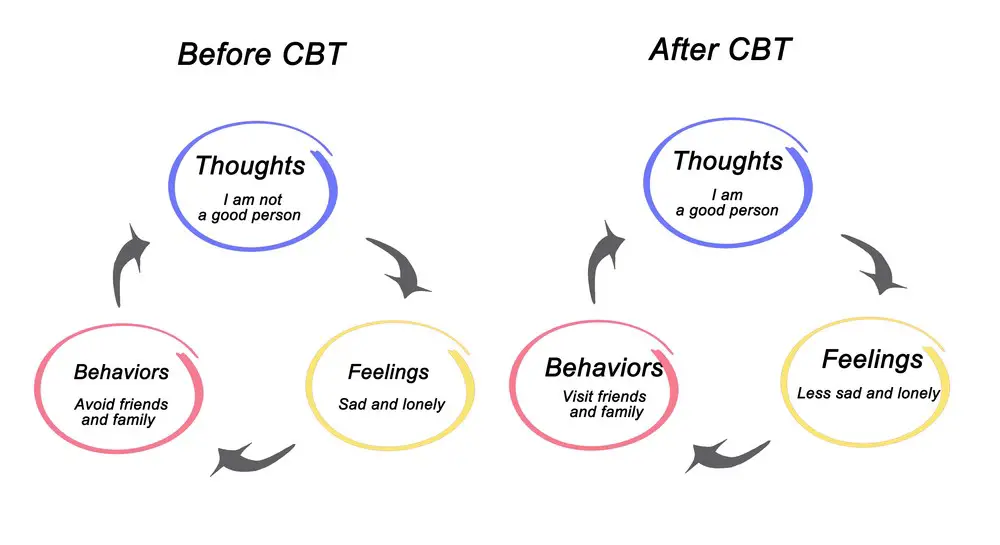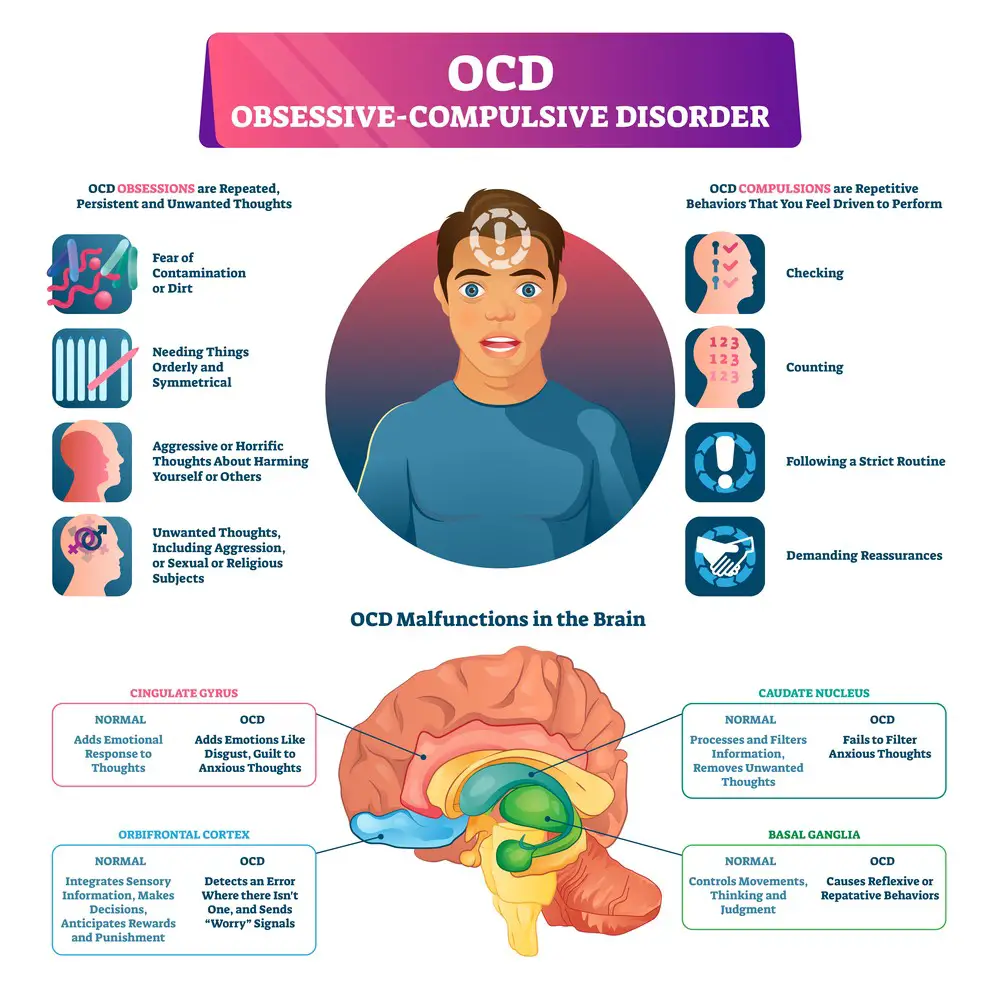As a BetterHelp affiliate, we receive compensation from BetterHelp if you purchase products or services through the links provided
Obsessive-compulsive disorder, or OCD, can be a debilitating mental illness affecting the sufferer and their loved ones.
For those with OCD, intrusive thoughts and repetitive behaviors can take over their lives and make everyday activities difficult.
For partners of people with OCD, it can be difficult to know how to best support them.
The International OCD Foundation estimates around ‘1 in 100 adults — or between 2 to 3 million adults in the United States — currently have OCD’. Hence, it’s no secret that many partners must learn to cope with their loved one’s OCD.
There are many misconceptions about OCD symptoms and what OCD is, so understanding the facts about the illness and what you can do to help will be essential in supporting your partner.

What is Obsessive Compulsive Disorder?
The first step to being able to support your partner is understanding precisely what OCD is.
Obsessive-compulsive disorder is characterized by persistent, intrusive thoughts (obsessions) and rituals they feel they must perform to relieve anxiety (compulsions).
It is thought that a combination of genetic, biological, and environmental factors causes OCD. Some people may be more likely to develop OCD if they have a family history of the disorder, and it is believed that changes in brain chemistry may also play a role.
Environmental factors may also contribute to OCD development, such as stress or traumatic life events.
These behaviors can take over their lives, making it difficult for them to concentrate on family or work. Left untreated, these obsessions and compulsions can cause severe distress and interfere with the sufferer’s quality of life.
OCD symptoms in romantic relationships can manifest themselves in various ways, including but not limited to:
• Over-checking locks or appliances
• Excessive cleaning or washing of hands/body/clothes
• Constant reassurance seeking from a partner
• Withdrawal and isolation from family and friends

How to Support Your Partner With OCD
When it comes to supporting your partner with OCD, it is essential to be patient and understanding.
Acknowledge their feelings and do not try to “fix” the problem. Offer reassurance that you are there for them and will help them in whatever way they need.
Avoid Creating a Negative Environment
It can be easy to become frustrated with the rituals and behaviors of someone with OCD, but it is essential to avoid creating a negative environment.
Try not to get angry or argue with your partner if they have difficulty controlling their obsessions or compulsions.
Instead, encourage them to seek professional help and offer emotional support during this process.
Creating Boundaries and Reducing Stress
It is essential to create boundaries in the relationship regarding OCD behaviors. This will help keep stress levels low and ensure that both partners are on the same page regarding expectations.
Encourage your partner to participate in activities they enjoy, such as yoga or meditation. Exercise is also a great way to reduce stress and help your partner manage their OCD symptoms.
Provide Positive Reinforcement
One of essential components in helping someone with OCD is positive reinforcement. Encourage them when they are making progress or managing their symptoms better than usual.
This will help them to stay motivated and feel supported. It is also helpful to celebrate successes along the way, no matter how small they may be.
If they do engage in compulsive behaviors, try to remain calm and offer support. Let them know that you understand their difficulty in controlling the urges, but explain why it’s essential for them to take steps to manage their disorder.
Reinforcement can be a powerful tool for helping someone manage their OCD.
OCD can be a complex disorder to live with, but having the support of a loving partner can make it much more manageable.
Can Relationships Affect OCD Or Vice-Versa?
Yes, relationships can have a significant effect on OCD symptoms.
Relationships can provide comfort and stability, which may help reduce anxiety levels.
However, stressful or unhealthy relationships can worsen symptoms.
Maintaining supportive relationships with family members and friends is essential to manage OCD symptoms better. Additionally, it is beneficial for individuals with OCD to seek professional help to understand their disorder better and create an effective treatment plan.
Relationship OCD (ROCD)
Relationship OCD is a type of OCD in which the sufferer has intrusive thoughts, doubts, and concerns related to the relationship itself.
ROCD symptoms can include an obsession with perfectionism, insecurity, and continually questioning one’s feelings for their partner and comparing them to others.
It is essential to seek treatment if you or your partner are experiencing ROCD symptoms.

Cognitive-behavioral therapy (CBT) is an effective treatment for OCD and can help reduce symptoms of ROCD. Medication may also be used in conjunction with CBT to reduce symptoms further.
It is essential to find a qualified therapist knowledgeable about OCD and ROCD.
Strategies for Coping With Your Own Stress
There’s no shame in feeling overwhelmed or stressed about your partner’s OCD. Taking care of yourself is essential to support your romantic partner effectively.
Practice self-care activities such as yoga, meditation, and exercise. Spend time with friends and family members who support you and your partner. And don’t be ashamed to talk to a therapist if you feel overwhelmed or need additional support.
You shouldn’t feel guilty for taking time for yourself or needing a break from your partner’s OCD.
It is important to take care of yourself, just as it’s essential to support your partner.

Final Thoughts: OCD in Relationships Can Be Tricky, But Not Impossible…
OCD in relationships can be tricky and even overwhelming, but it doesn’t have to be impossible.
By understanding the disorder, creating healthy boundaries, and providing positive reinforcement, you and your partner can successfully navigate this difficult terrain.
And remember that looking after yourself is just as important as looking after your partner.
FAQs
- 3 Ways Wearing a Hat Can Help Lower Your Stress Levels - April 19, 2025
- Breaking the Silence: Why Men’s Mental Health Matters More Than Ever - April 15, 2025
- How to Transform a Home’s Patio Space into a Relaxing Space - March 23, 2025
This site contains affiliate links to products. We will receive a commission for purchases made through these links.



